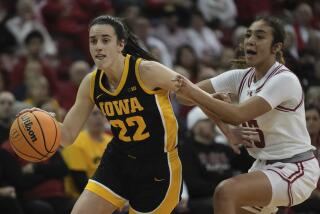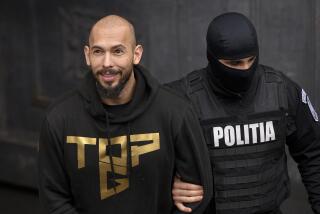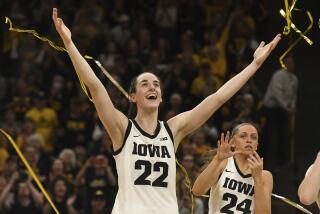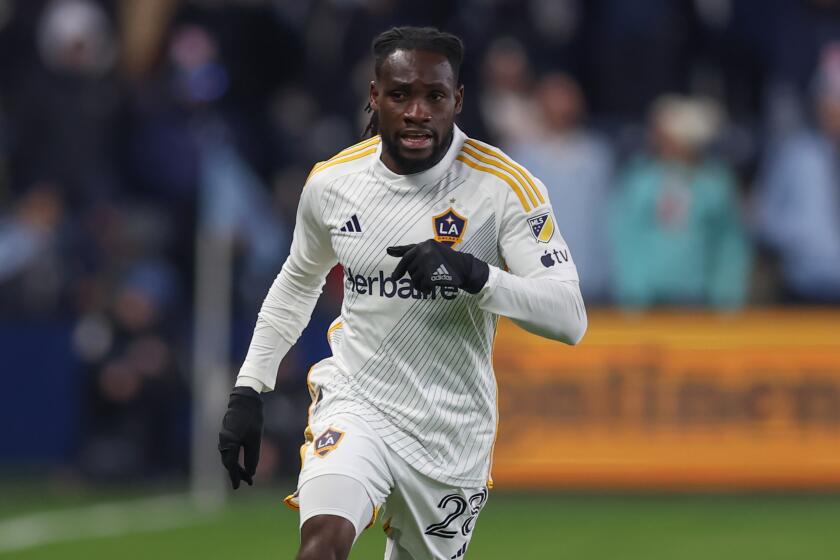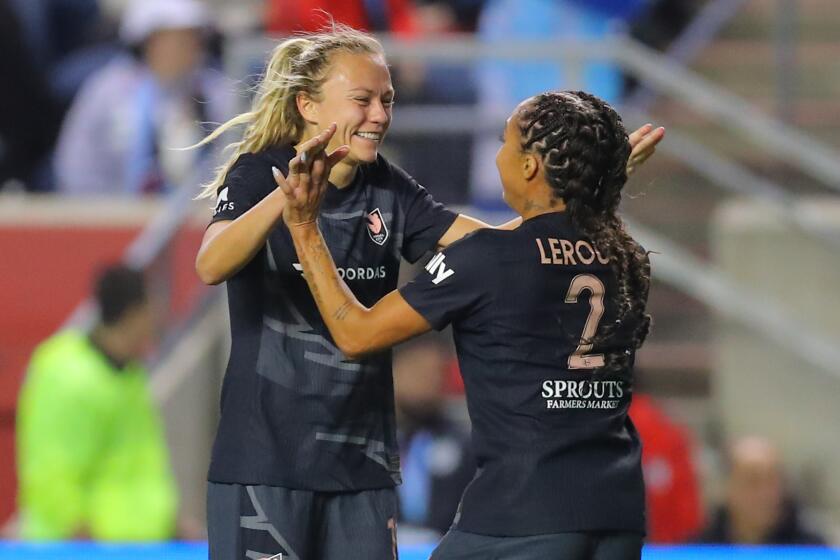In trying to stop soccer racism, did British court encourage it?
LIVERPOOL, England -- At first blush, John Terry’s racism trial looked like much ado about nothing. But it could turn out to be worse than that. Because though the case leveled at the former England national team captain was meant to stamp out racism in the sport, it may unwittingly be having the opposite effect.
Terry, a defender for European champion Chelsea and one of the more controversial players in the English Premier League, was acquitted by a British court earlier this month of racial abuse. A London prosecutor had accused Terry of a racially aggravated public order offense after he and Anton Ferdinand of Queens Park Rangers had a profane on-field exchange — seemingly heard only by the two players — and the players couldn’t agree on what exactly had been said in the closing minutes of a game last fall.
Terry was alleged to have referred to Ferdinand, who is black, with a crude three-word epithet that included the word “black” in the middle.
After the match Ferdinand said Terry approached him and asked, “Are we cool?” To which Ferdinand responded yes. The two players, according to teammates and a coach who witnessed the exchange, then slapped hands and embraced one another.
That should have been the end of it.
Except that an off-duty police officer was watching the game at home — and he complained to police about Terry. (During the civil trial the prosecution used lip-readers to study TV footage from the game.)
The complaint proved to be just the start of a manic chain of events that included the filing of public charges against Terry; a decision by England’s Football Assn. (FA) to strip him of his national team captaincy; Fabio Capello’s resignation as England’s national team coach over Terry’s censure; and finally a comical weeklong show trial during which Terry argued, with a straight face, that he couldn’t be a racist because he has black teammates and has worked with African charities.
Yet if the English courts were trying to highlight racism as a huge and indelible strain on the social fabric of world soccer, the best evidence for that argument may have come after the trial in a Twitter exchange involving Ferdinand’s brother Rio, who preceded Terry as captain of the national team.
During the trial Ashley Cole, a black Chelsea teammate of Terry’s, was called as a character witness for the defense. That inspired a tweet to Rio Ferdinand in which Cole was likened to “choc ice,” a popular frozen treat made from vanilla ice cream covered in chocolate and a term commonly understood to refer to someone who is black on the outside but white on the inside.
“I hear you fella!” Rio Ferdinand responded. “Choc ice is classic!”
A day later, Rio Ferdinand tweeted again — this time to deny being a racist.
Yet that wasn’t enough to stop police from launching an investigation to determine whether a seemingly racist taunt directed by an avowed non-racist at someone who was testifying in a racism trial of another avowed non-racist who had made a seemingly racist taunt could be considered . . . well, racist.
The whole ordeal left many in English soccer wondering what, exactly, was the point of the exercise?
Racism and homophobia are huge issues in soccer, a fact that was underscored during last month’s European Cup when Dutch players were subjected to monkey calls during a training session, Italian star Mario Balotelli was the subject of verbal abuse in Poland and Czech defender Theodor Gebre Selassie complained of racist chanting. And it’s those kind of incidents that long ago spurred UEFA and FIFA, the European and international governing bodies for soccer, to adopt serious and wide-ranging campaigns against racism.
The FA has taken a strong stand against it as well. A week before the Terry incident, Liverpool’s Luis Suarez repeatedly directed racist insults at Manchester United’s Patrice Evra, earning an eight-game suspension and a fine of more than $63,000 from the FA.
Contrast that with the government grandstanding and circus atmosphere surrounding the trial of Terry, who, had he been found guilty, faced a maximum fine of $3,900, not much for a guy who makes nearly a million dollars a month. Even Paul Elliott, the target of racist abuse from opposing fans when he played in the Premier League two decades ago, called the episode “a sorry day for English football.”
Chief among Elliott’s worries was that the victims of more serious attacks might now be reluctant to come forward, thinking “it’s more hassle than it’s worth.”
Many Brits agree.
“John Terry in my and many other peoples’ view is just a narrow-minded bigot of which there are many, many more in society,” says soccer fan Richard Orme, the European sales director for a thermoplastic manufacturer. “Do-gooders who think that forcing the police to pursue this is a good use of police time and money are mistaken.”
Then, pointing to the dust-up between Rio Ferdinand and Cole, Orme added: “ If anything, it promotes racism.”
Still, some good may come out of the ordeal after all. On Thursday, Sports Minister Hugh Robertson became the second senior government minister in less than a week to call on the FA to adopt a zero-tolerance policy on verbal abuse. And last winter Prime Minister David Cameron ordered the FA to come up with its own plan for combating racism in soccer, then provided $4.7 million for a new coaching center to encourage racial and ethnic minorities to become team managers.
It’s unlikely any of that would have happened without the publicity surrounding Terry’s trial.
And finally there’s the pain and embarrassment Terry experienced, which should serve as a warning to others — including Rio Ferdinand, whose tweet remains under investigation by police — that words have meaning.
Over the last eight months Terry has lost his national team captaincy, a large chunk of his reputation and perhaps the last vestiges of respect he had in many corners of England because he uttered three hurtful words. If that causes others to think first before repeating the same offense, perhaps it was worth it after all.
